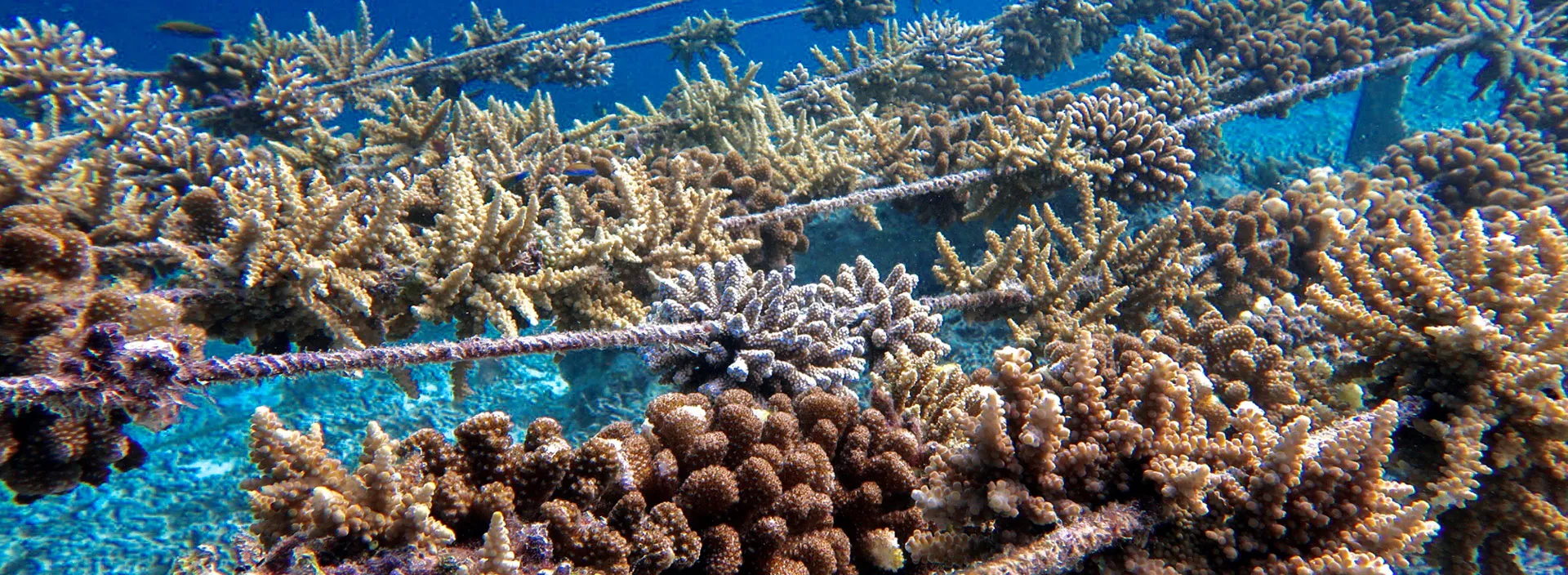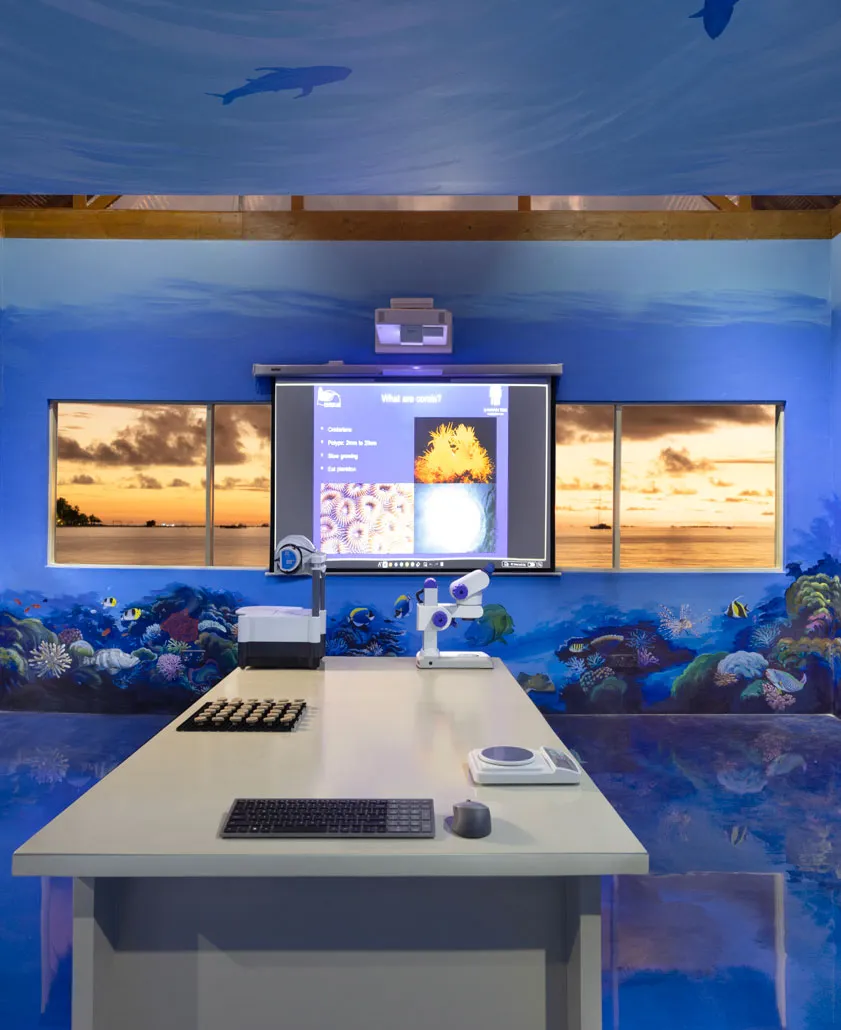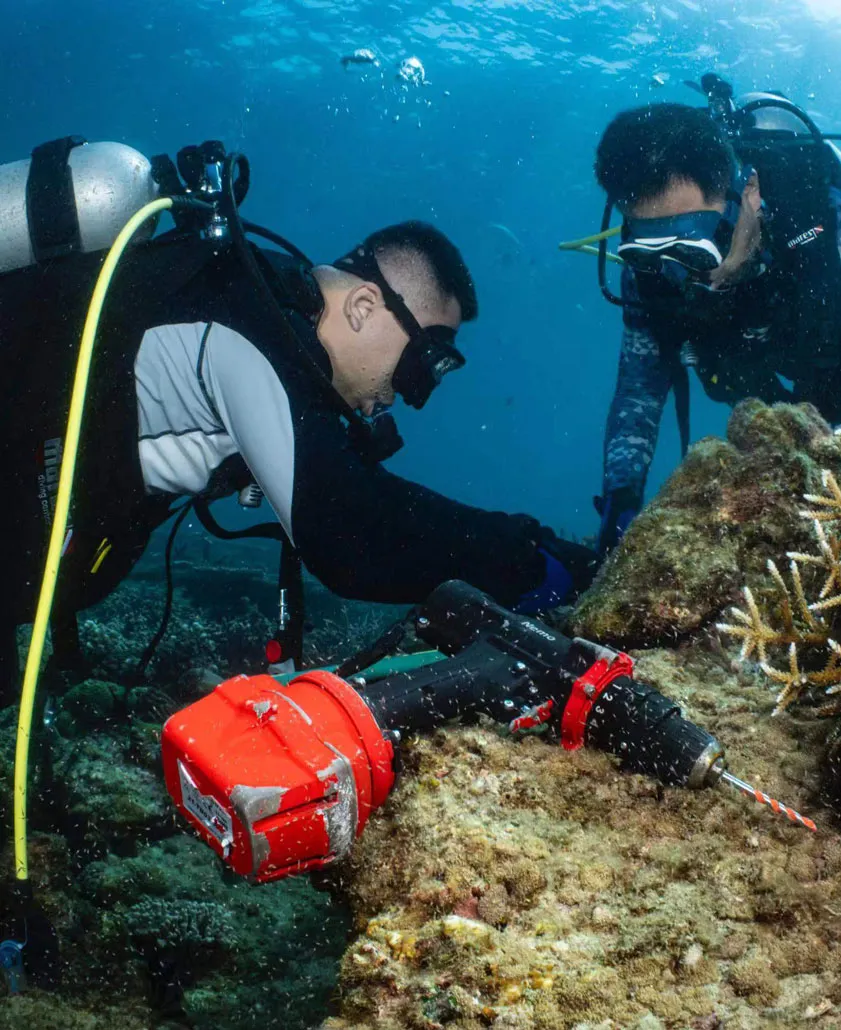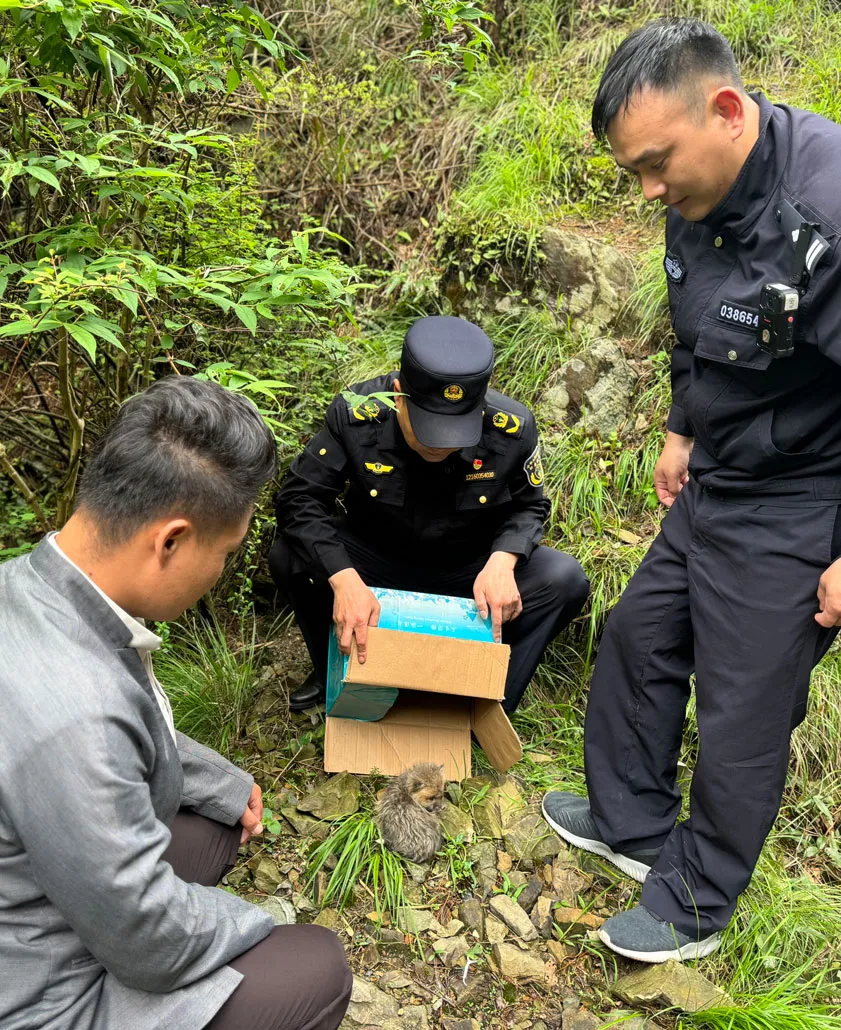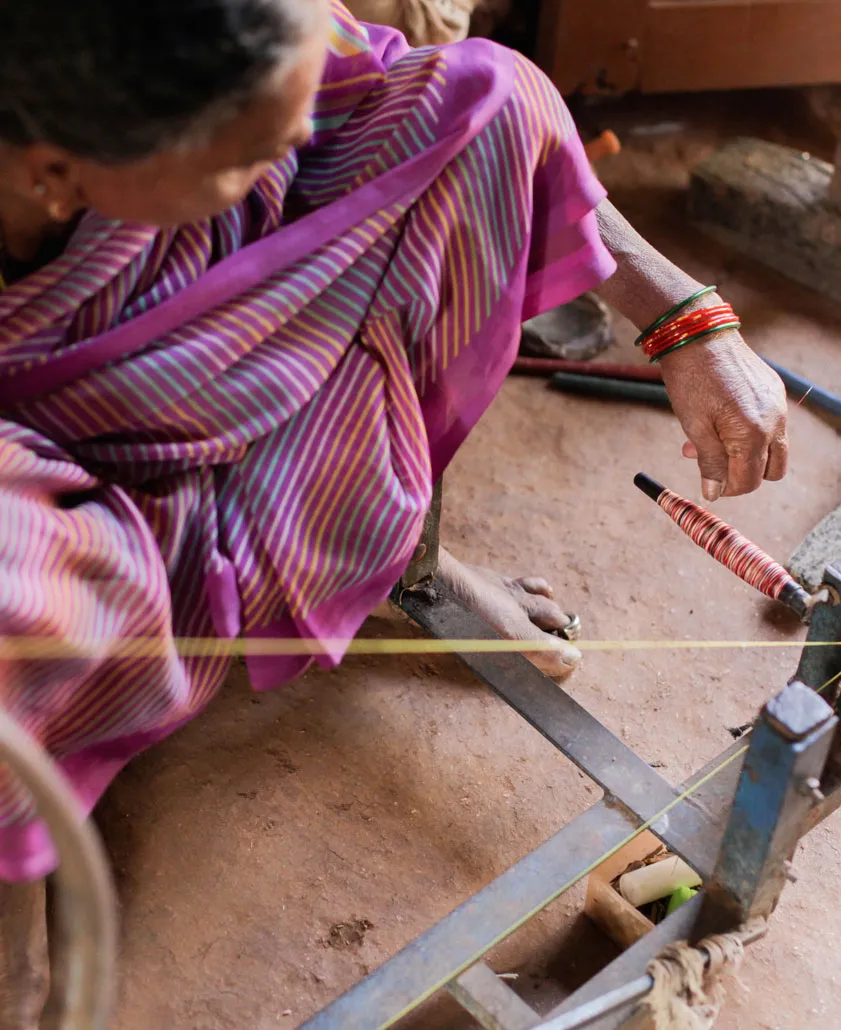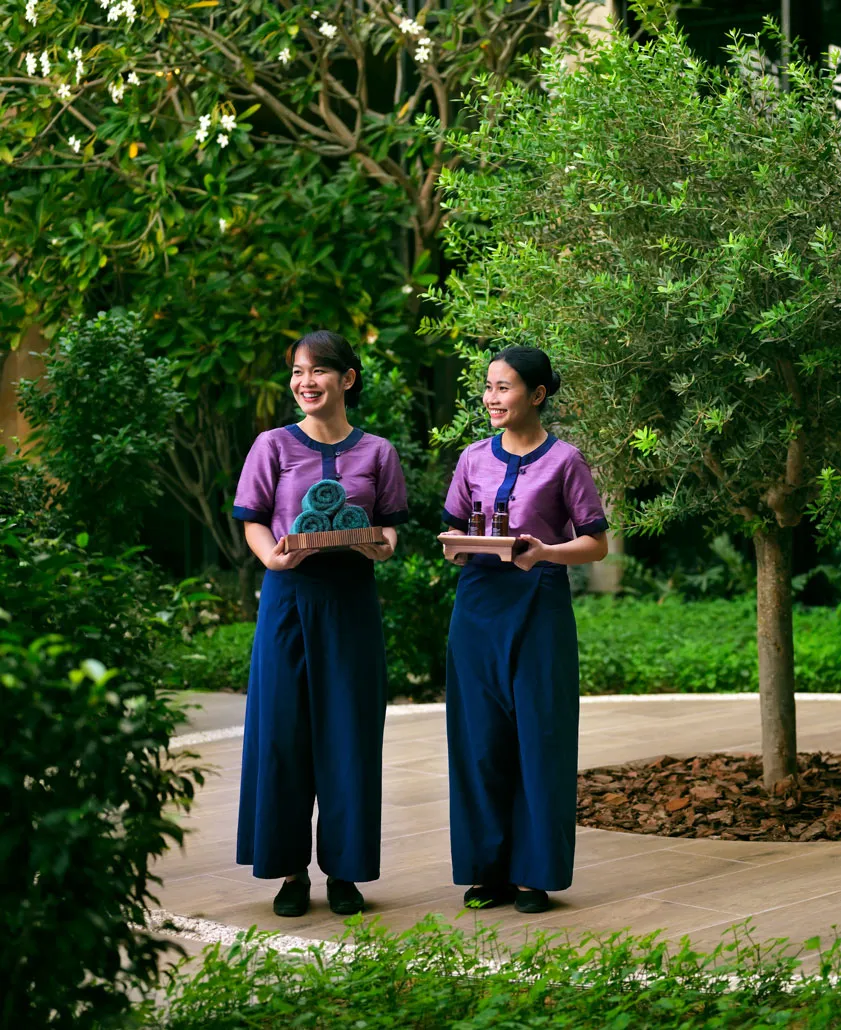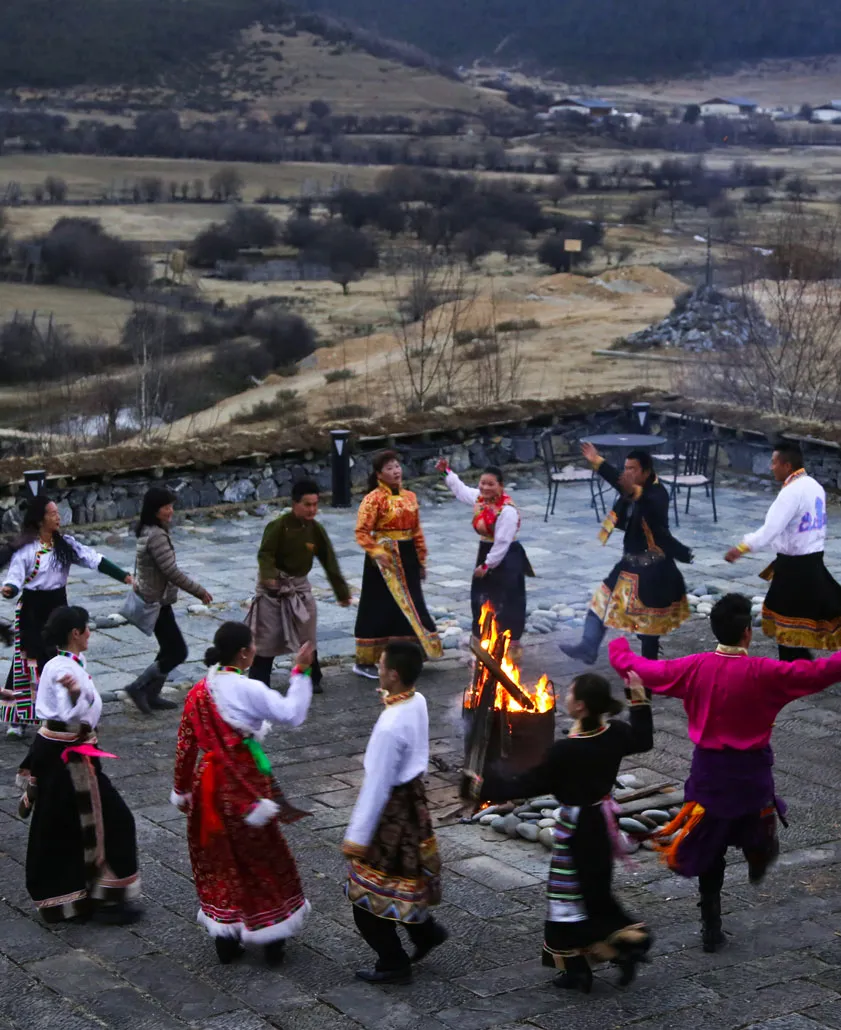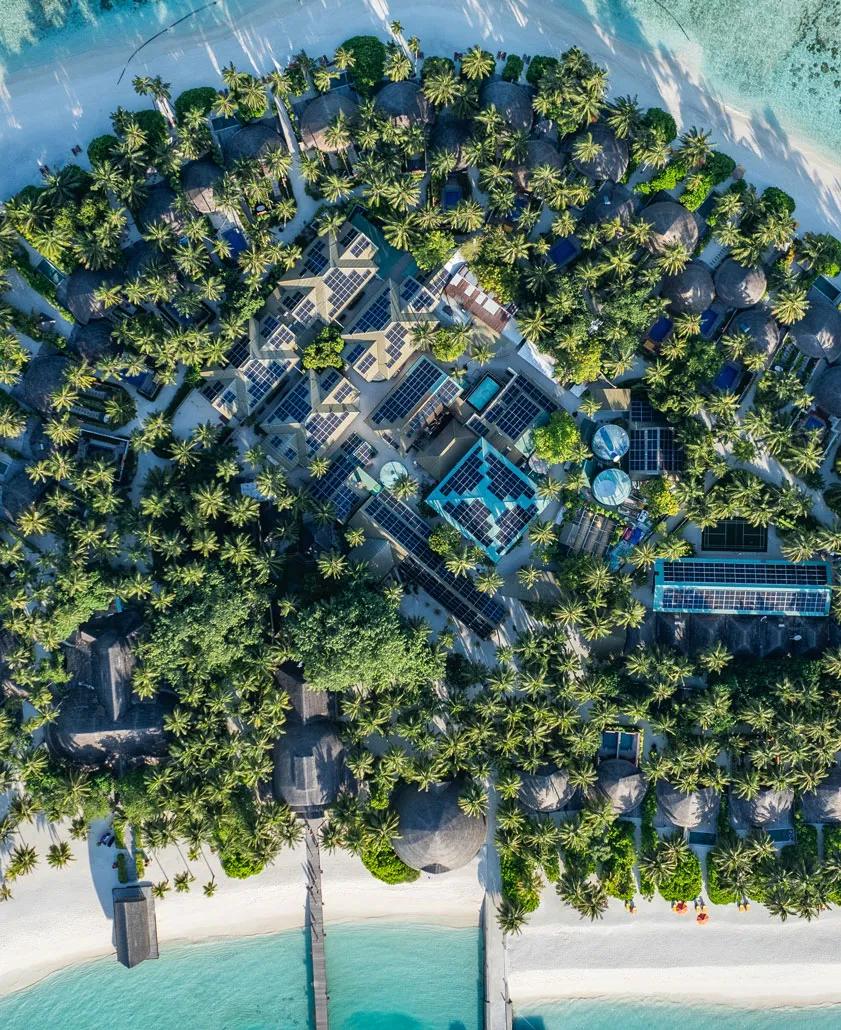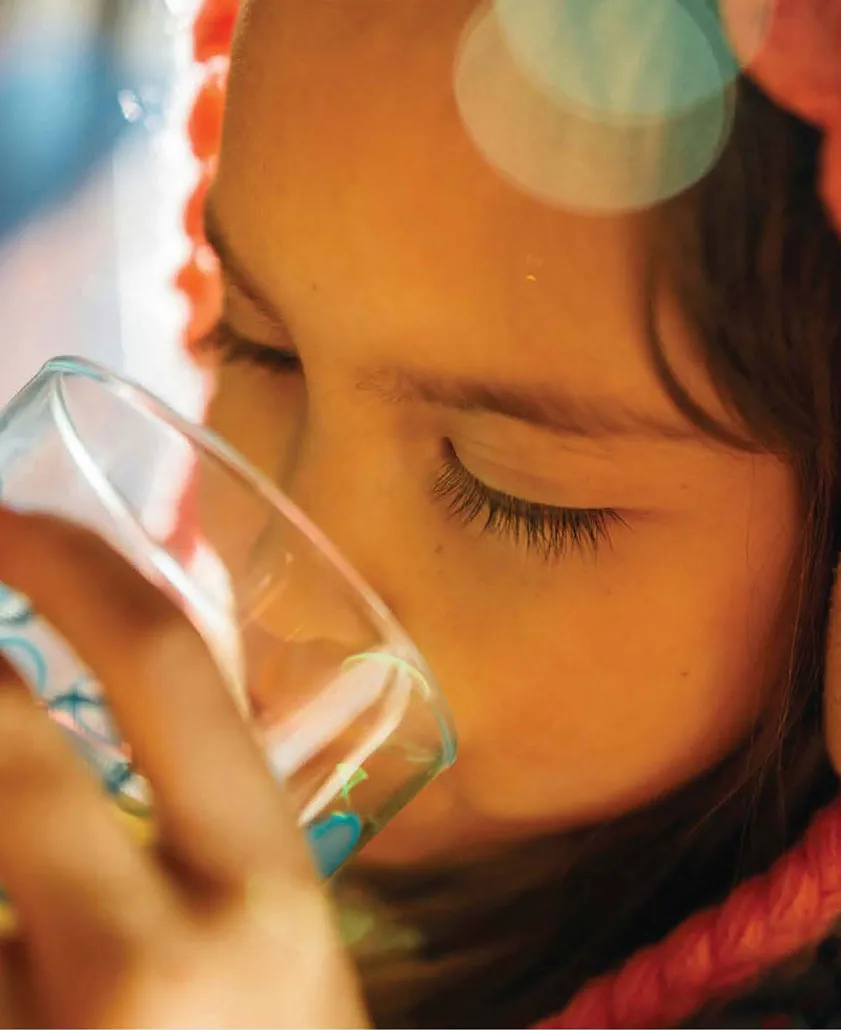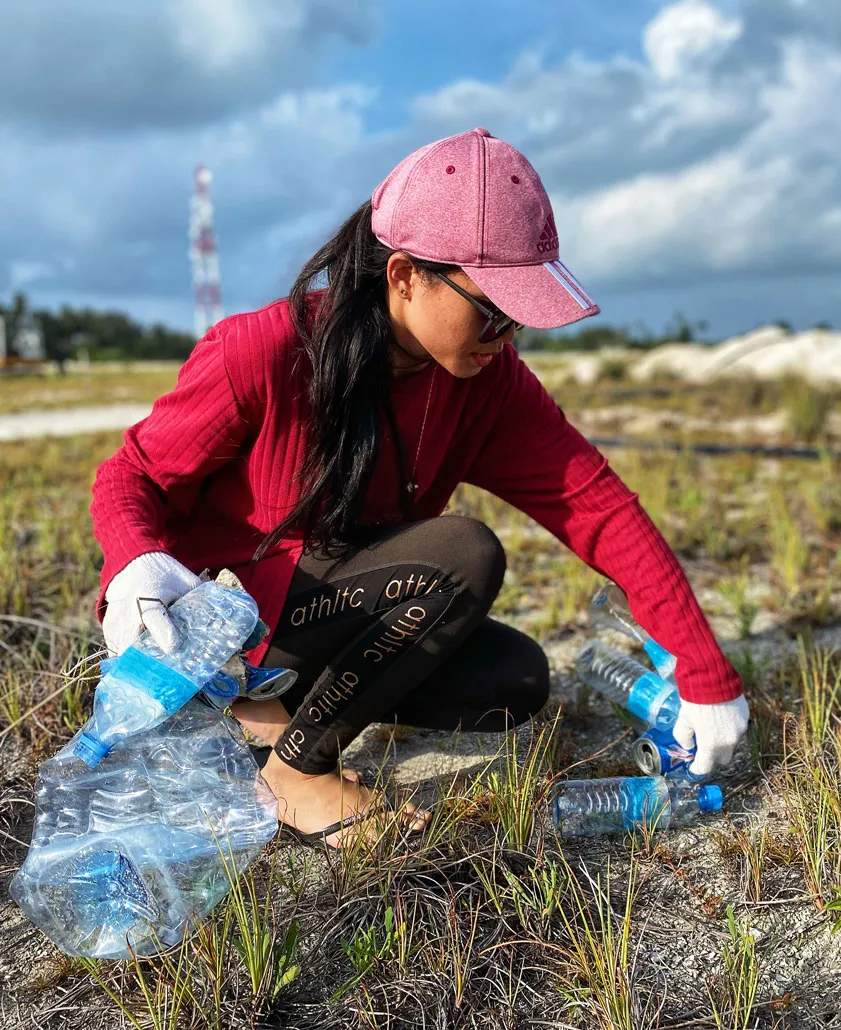Our Approach
We seek to reduce the environmental impact of our operations, starting from the way we design and build—employing stringent risk assessments to minimise negative impacts on sensitive habitats and areas of high biodiversity around our hotels and resorts.
Restoration and research projects play an important role—we have established conservation labs in the Maldives and Indonesia, and we partner with institutions and experts on research to gain understanding of and inform appropriate conservation and management strategies.
Our food supply chain presents an opportunity to improve biodiversity by seeking certified-sustainable sources.
We actively promote awareness of biodiversity issues, the appreciation of nature, and the adoption of sustainable travel behaviours—encouraging our guests and stakeholders to participate in and support our efforts.
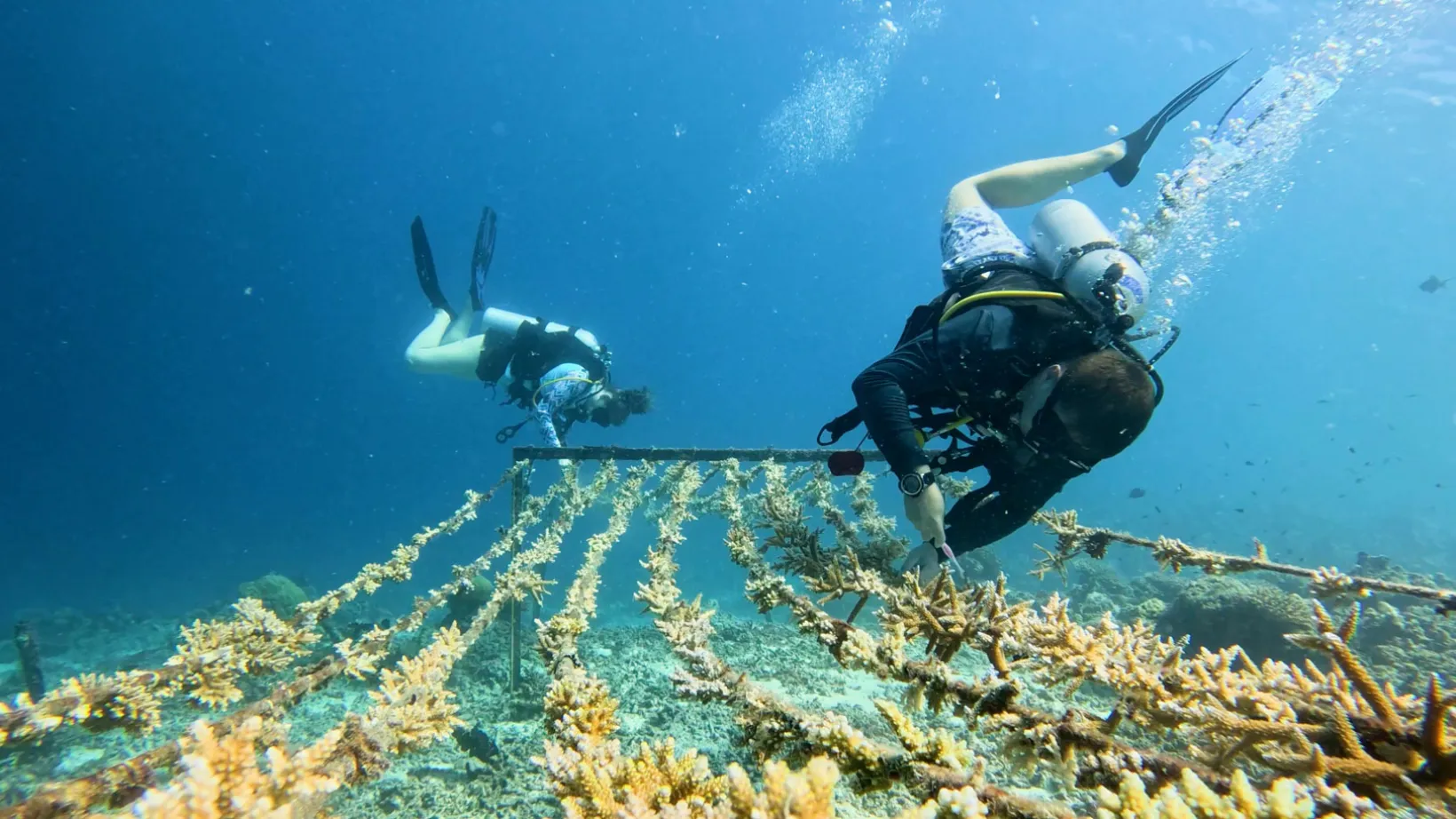
Our Marine Lab is the first resort-based facility of its kind in the Maldives. Welcoming marine biologists from around the world, it is a centre for conservation, a source of sustainable livelihoods for the local community, and a place of learning and inspiration for our guests.
Next Steps
Building on our current and previous conservation successes, our aim is to adopt a more integrated, science-driven approach to biodiversity going forward.
In 2025 and beyond, we will aim to:
